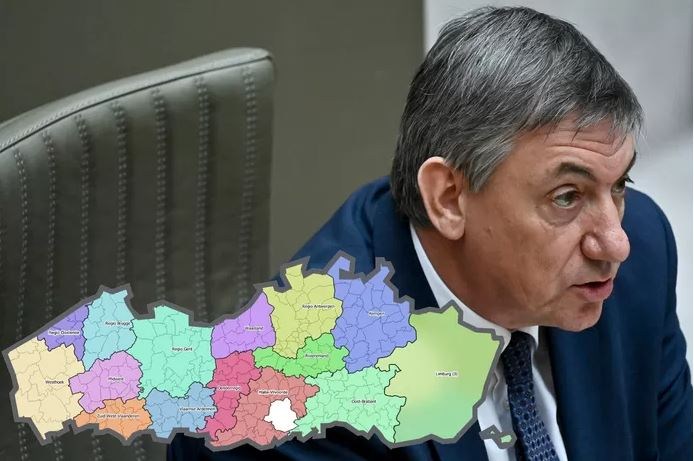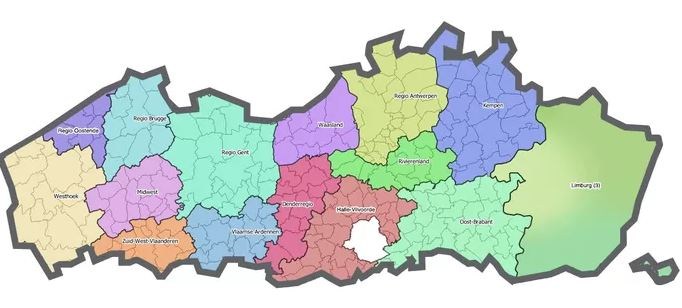The Flemish government has found an agreement to divide the Region into 17 districts as part of an "internal Flemish state reform," Minister-President Jan Jambon announced on Friday.
Currently, Flanders is "a jumble of" 2,229 inter-municipal cooperation agreements across 300 municipalities and five provinces, in which citizens, companies, associations and administrators can no longer find their way, according to him.
"Some are concerned with waste, others with water distribution, still others with mobility," Jambon said. "Sometimes, municipality A works together with B and C, another time with C and F."
Flanders will do away with "that complicated spaghetti," and reorganise everything into 17 districts, "which will give the administrative efficiency in Flanders an enormous boost."
For the Limburg province, it was decided that three districts will be created, but the boundaries could not yet be determined. "Further consultation with the mayors and the governor will take place, in order to arrive at three regions by the Easter holidays," he said.
By 2025, Flanders will align the sectoral boundaries with the new districts. "The local governments will be given 10 years to bring their mutual cooperation in line," Jambon said.
Flemish Minister for Domestic Administration Bart Somers stressed that the districts will not be a new layer of government (like the provinces or municipalities), but will instead counteract administrative fragmentation.
"We strengthen the local administrative power and opt for drastic simplification," Somers said during a press conference. "Fewer structures and mandates. More transparency and efficiency."
He explained that consultations with the Flemish mayors will ensure that "hundreds of structures will be merged and abolished. This simplification required courage, but it will lead to better policies for our citizens and entrepreneurs."
"Small-scale cooperation between municipalities and supra-regional cooperation will remain possible in some cases," Somers said. "This is the biggest internal Flemish state reform ever."
Maïthé Chini
The Brussels Times


